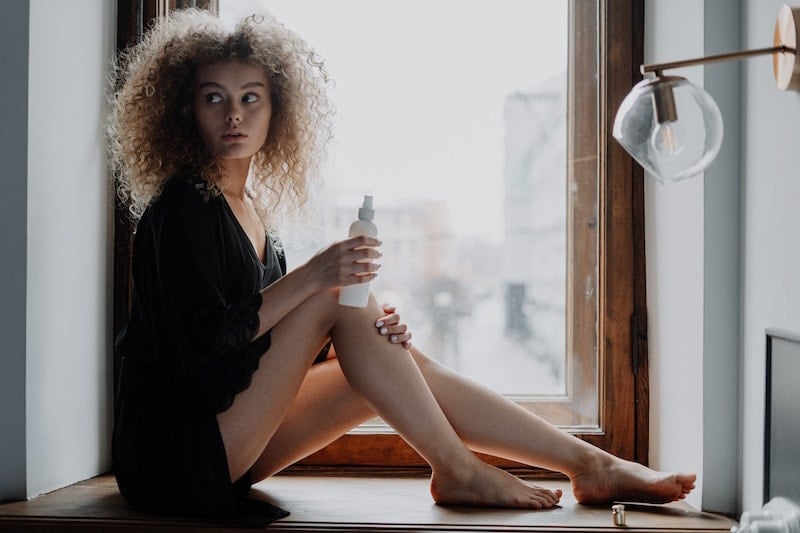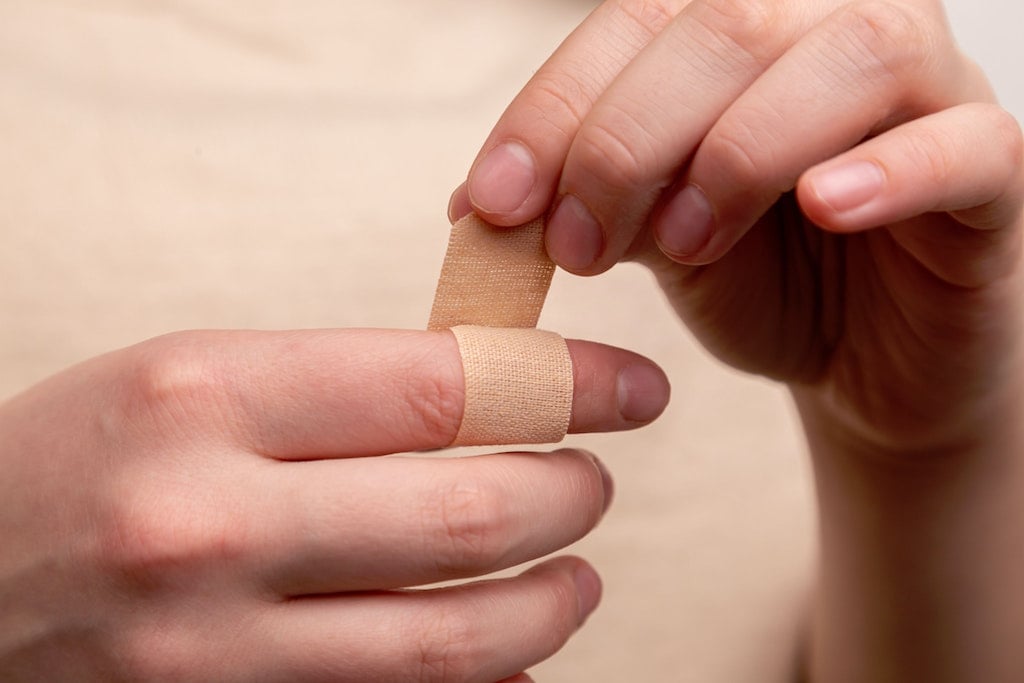
In spite of movies like The Parent Trap that show no consequences to piercing yourself in a dingy cabin, there’s actually quite a bit that can go wrong when you get a piercing.
This tidbit of information isn’t meant to scare you. In fact, if you do everything correctly, then it’s likely that you will never see even minor complications. But, you need to be vigilant, which also means choosing the proper products for your new piercing.
Unfortunately, there are plenty of nonreputable piercers out there who might suggest products that aren’t safe for your piercing. We’re here to clear up some of the confusion.
Here’s a quick guide to wound wash for piercings and which products are safe to use on your healing piercing.
Wound wash is simply a saline solution meant to clean minor scrapes and wounds, including piercings. Like all saline solutions, it’s essentially salt and water.

You can mix your own wound wash at home by mixing ¼ teaspoon of non-iodized sea salt in one cup of warm distilled water. However, it’s easy to get the mixture incorrect, and wound washes often come in easy-to-use spray bottles making them easy and convenient.
While all wound washes are a simple saline solution, some wound washes add ingredients. Some of these ingredients are meant to soothe certain symptoms. However, these additives are unsafe for piercings.
When shopping for wound washes to use on your piercings, you must make sure that there are no ingredients besides pharmaceutical-grade water and sodium chloride (salt). Even some wound washes that are made specifically for piercing aftercare contain additional ingredients. These should be avoided since they can cause irritation that may prolong healing.
Pay attention to the ingredients in the wound wash that you use. Even if your piercer suggests a wound wash, double-check to ensure that it’s free from additives. There are a few piercing aftercare wound washes on the market that have been deemed unsafe for piercings, yet some nonreputable piercers still recommend them.
You might find that you have wound wash for piercing aftercare leftover after your piercing has finished healing. The good news is that you can also use wound wash for small scrapes or scratches.
While not all wound wash is safe for piercings, all piercing-safe wound wash is suitable for other minor injuries. This is because wound wash for piercings shouldn’t have any additives while standard wound wash may contain extra ingredients to soothe symptoms associated with minor injuries.
Using wound wash for piercing aftercare actually makes cleaning your piercing quite easy. Simply spray the wound wash directly onto the piercing 2 – 3 times a day, and let it dry.

If your piercing appears in your nose or ear cartilage, some piercers recommend that you should quickly dry the wound wash using the no-heat setting on your hairdryer. This is because cartilage piercings should avoid dampness as much as possible so that piercing bumps don’t appear.
It’s understandable that you might question why you should invest in wound wash when you could just mix your own saline solution at home.
While mixing your own is cheaper, that’s essentially the only benefit to mixing your own saline solution.
Wound wash is guaranteed to be the perfect dilution for your body piercing. If you mix at home, it’s very easy to make the mixture either too strong or too weak, both of which pose issues for your healing piercing.
Additionally, wound wash comes in a sterile container that often sports a spray nozzle for easy use. This ensures that your saline solution remains sanitary, and it makes aftercare incredibly easy.
Finally, wound wash isn’t that much more expensive than buying your own ingredients. You can often purchase a can for around $10 (US), and you might even be able to use that can for multiple piercings depending on how quickly they heal.
Wound wash is essential when you’re healing your piercing. However, you need to remember that not all wound washes are the same. Pay attention to the ingredients before you buy, and make sure that you’re going to a reputable piercer whose recommendations you can trust. If you follow these rules, then your piercing should heal just fine.
Leave A Comment